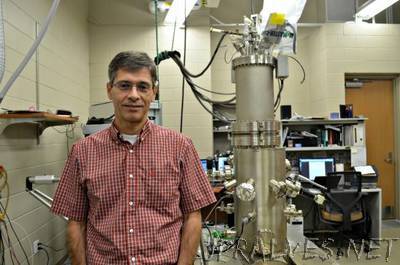
“A well-known computational problem seeks to find the most efficient route for a traveling salesman to visit clients in a number of cities. Seemingly simple, it’s actually surprisingly complex and much studied, with implications in fields as wide-ranging as manufacturing and air-traffic control. Researchers from the University of Central Florida and Boston University have developed a novel approach to solve such difficult computational problems more quickly. As reported last week in Nature Communications, they’ve discovered a way of applying statistical mechanics, a branch of physics, to create more efficient algorithms that can run on traditional computers or a new type of quantum computational machine, said Professor Eduardo Mucciolo, chair of the Department of Physics in UCF’s College of Sciences. Statistical mechanics was developed to study solids, gasses and liquids at macroscopic scales, but is now used to describe a variety of complex states of matter, from magnetism to superconductivity. Methods derived from statistical mechanics have also been applied to understand traffic patterns, the behavior of networks of neurons, sand avalanches and stock market fluctuations. There already are successful algorithms based on statistical mechanics that are used to solve computational problems. Such algorithms map problems onto a model of binary variables on the nodes of a graph, and the solution is encoded on the configuration of the model with the lowest energy. By building the model into hardware or a computer simulation, researchers can cool the system until it reaches its lowest energy, revealing the solution.”
